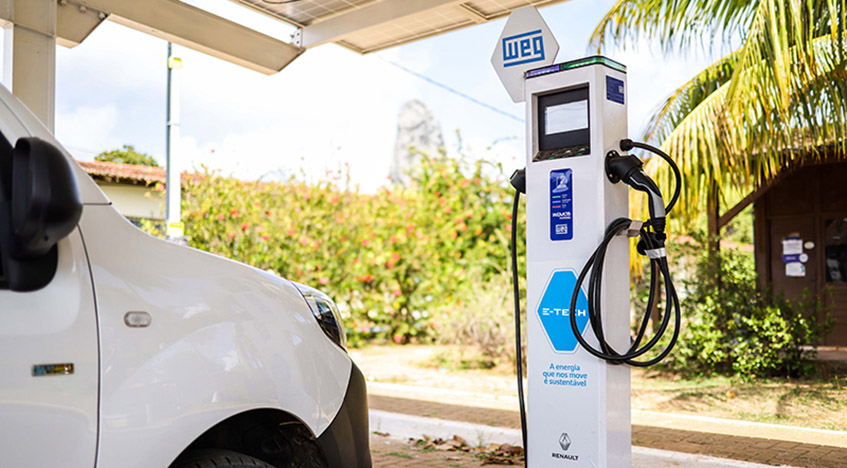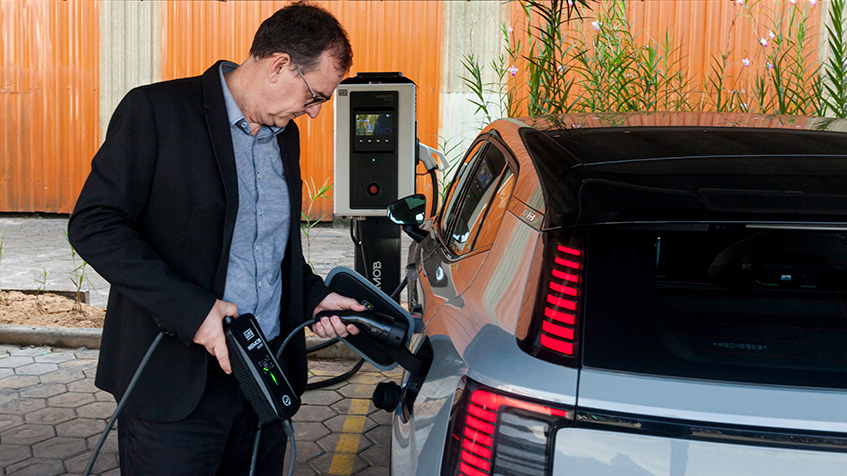Located about 540 km away from the northeastern coast of Brazil, Fernando de Noronha is an island visited by thousands of tourists each year. About 70% of the territory belongs to the Marine National Park, which is fully protected and considered a Natural World Heritage by Unesco, and the other 30% is an Environmental Protection Area (APA). These initiatives were created to protect the fauna and flora living conditions and balance human occupation with the environment protection.
To allow harmonization between environmental resources and tourism activities and maintain the sustainability of the natural paradise, continuous innovations are required on the island. That is why WEG, in partnership with the Administration of Fernando de Noronha, Renault do Brasil and Polo Engenharia, supplied equipment for six solar power generation garages (Carport) with 22kW semi-fast charging station of the WEMOB line (WEG Electric Mobility), to charge the lithium-ion batteries of 28 electric cars that already circulate in the island.
Solar garages have the capacity to generate 26MWh per year, enough to cover the electrical consumption of all zero-emission cars that circulate on the island. This energy generated is equivalent to 180 thousand kilometers driving without generating CO2, which will prevent from burning approximately 20,000 liters of fossil fuel. In addition, the surplus energy generated by the solar power garages will be made available to the local population with zero waste.
"Our objective with this initiative is to encourage sustainability actions with the use of renewable energy sources, such as solar power generation, in addition to electric mobility avoiding environmental impacts in Fernando de Noronha”, says Manfred Peter Johann, WEG Automation Business Unit Managing Director. Currently, 11% of the energy consumed in the island comes from Noronha I and II solar power plants, also equipped with WEG solar systems. “With the help of Renault and Polo, we are helping to reduce the carbon dioxide emissions as well as promoting the generation of renewable energy on the island,” Manfred adds.
For Renault the project complies with the Law-Decree issued by the state of Pernambuco government authorities prohibiting circulation of fuel-powered vehicles in the island as from 2022. The same Law-Decree states that all non-electric-powered vehicles will be removed from the Island starting in 2030./p>
"Renault intends to bring modernity to the automobile industry. This project in Fernando de Noronha, which is Brazil´s heritage site, is part of our strategy of being a technology, services and clean-energy company”, says Ricardo Gondo, President of Renault do Brazil.



